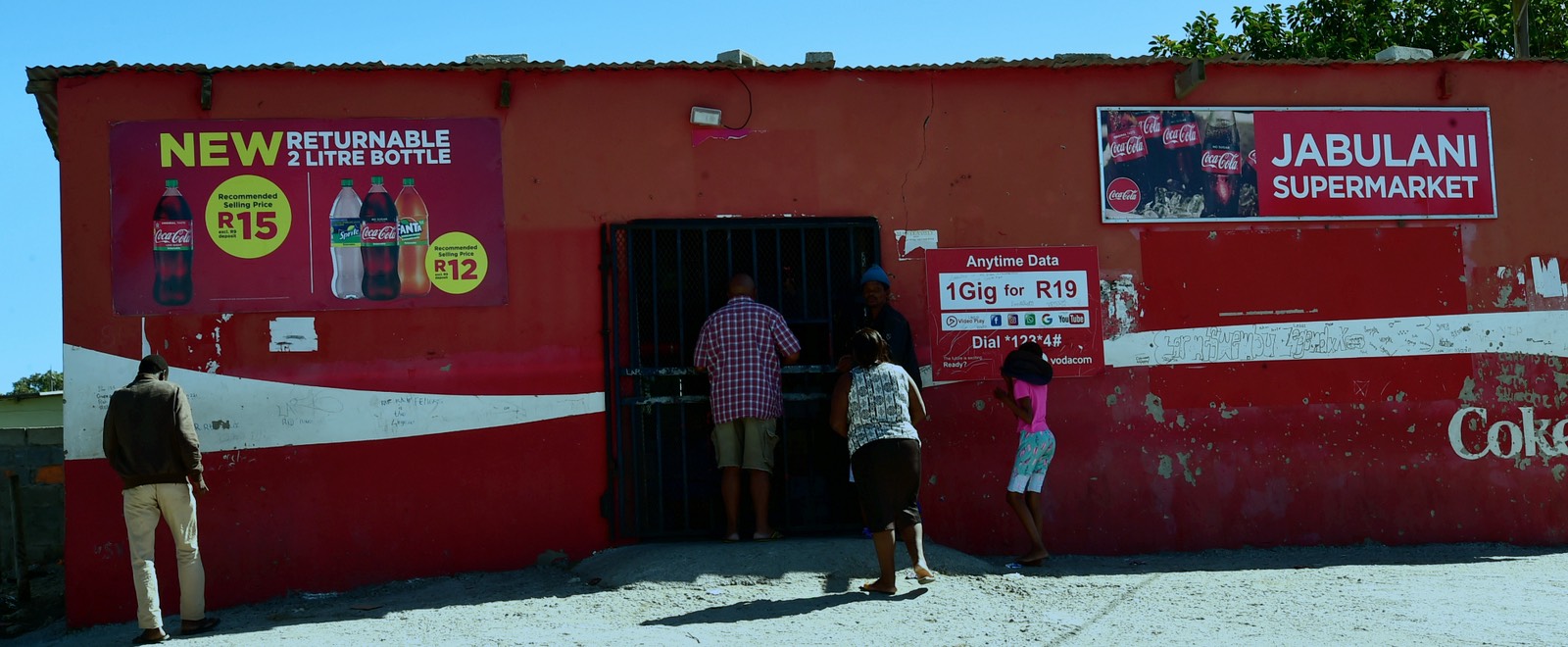Government, Entrepreneurs Aim to Revitalise Township Retail Amid Growing Competition
Caption:
Township dwellers buying at a local spaza shop.
📷 EUGENE COETZEE
The Gauteng government and the National Federated Chamber of Commerce and Industry (Nafcoc) are at odds over the progress of initiatives to help lo- cal entrepreneurs re-enter the grocery retail market in the townships.
The grocery retailing space was once the backbone of black business during the apartheid era and the chamber, which represents 2.3-million members, wants black South Africans to reclaim it.
In the past 30 years, South African entrepreneurs in urban townships and rural towns have lost their foothold in grocery retailing, outcompeted by stronger players. Township residents rely on spaza shops for daily essentials like bread, eggs and milk, while formal retailers handle larger monthly purchases.
The displacement of local traders in the spaza shop market — a key part of the informal economy — occurred despite the removal of apartheid-era trade restrictions and the introduction of Black Economic Empowerment policies meant to enhance black participation in the formal economy.
Today, South Africa’s informal economy is estimated to contribute 6% to the national GDP, valued at about R278.4bn.
To tackle this issue, the Gauteng government passed the Gauteng Township Economic Development Act two years ago, with the ambitious goal of increasing the economic contribution of townships to at least 30% of the province’s GDP by 2030.
The law aims to transform town- ships into thriving commercial cen- tres and commits the government to sourcing 40% of its procurement from township-based enterprises.
So far, Gauteng officials report having trained more than 4 000 township retailers, refurbished 1 900 spaza shops and established distribution centres in Mamelodi, Katlehong and Kagiso townships to supply these shops. Township retailers can also access loans from the Kasi Mnotho Fund, which has R100m available for disbursement.
Mathopane Masha, the director for inclusive economy at the Gauteng Department of Economic Development, says the initiative is build- ing a sustainable township manufacturing and supplier ecosystem.
“In the past two years, more than 50 township manufacturers have expanded their production capacity, allowing them to access larger markets,” says Masha.
He says many large retailers in township malls are willing to source bulk stock from township manufacturers, though production volumes remain a challenge.
Ncane Mbele, Gauteng secretary of Nafcoc, says little progress has been made in increasing the number of locally owned spaza shops.
“Undocumented foreign shop owners continue to dominate the market,” he says.
“The act must be enforced in partnership with SARS, municipalities, home affairs and Nafcoc. Un registered spaza shops are evading taxes and selling illicit goods. With- out proper enforcement, we won’t see change for another 10 years.”
It is estimated that 85% of SA’s 200 000 spaza shops are foreign- owned.
Meanwhile, major supermarket chains Shoprite, Pick n Pay, SPAR and Woolworths collectively con- trol 72% of the formal grocery re-tail market, benefitting from high entry barriers such as exclusive leases in township malls.
This dominance was detailed in a 2019 Competition Commission report.
In contrast, foreign spaza shop owners have exploited lower entry barriers such as lax law enforce- ment to corner the informal mar- ket. Many of these shops are un- registered, operate exclusively in cash and evade income taxes.
However, mounting public pressure is pushing the government to implement stricter regulations to curb undocumented foreign ownership and crack down on unregistered businesses in townships.
Research by the Sustainable Livelihoods Foundation and Plaas (Institute for Poverty, Land and Agrarian Studies) revealed that 33,3% of spaza shops are “survivalist”, owner-operated businesses. The remaining 66,6% are larger, informal businesses that prefer to remain unregulated to exploit loopholes in the system. These larger shops tend to offer a broader range of goods, provide credit and have stronger ties to wholesalers.
The competitive landscape for township retailers is shifting once again, with corporate giants entering the fray. Tiger Brands, the nation’s largest food manufacturer, recently announced plans to team up with 130 000 spaza shops.
Major retailers such as Pick n Pay and Shoprite have also begun rolling out smaller-format stores, including shipping container shops, aimed at capturing market share from traditional spaza operators.


